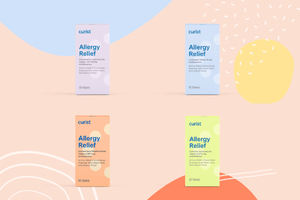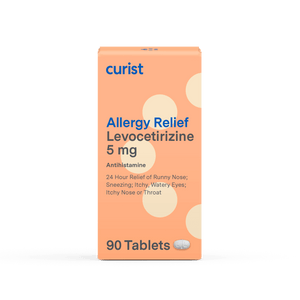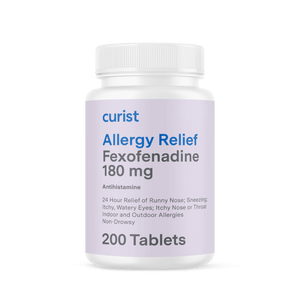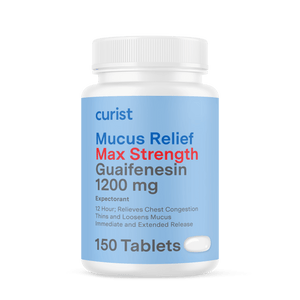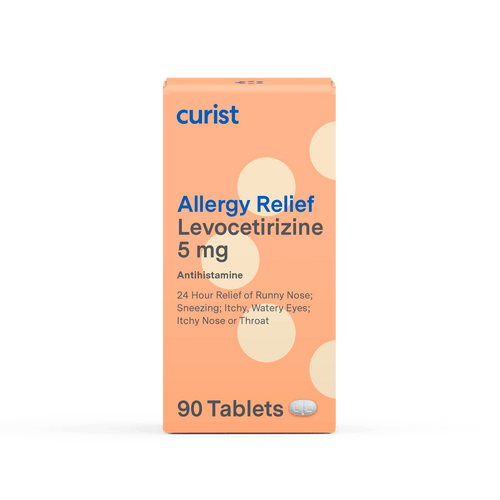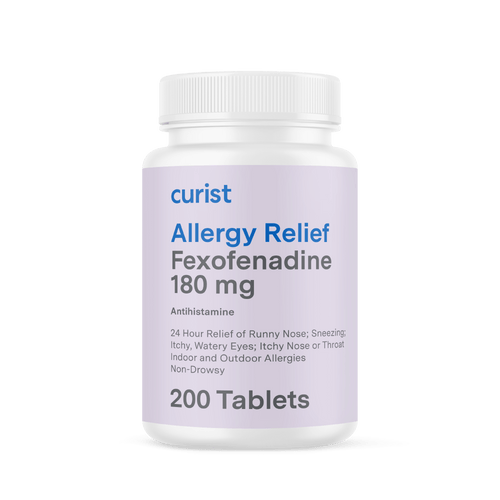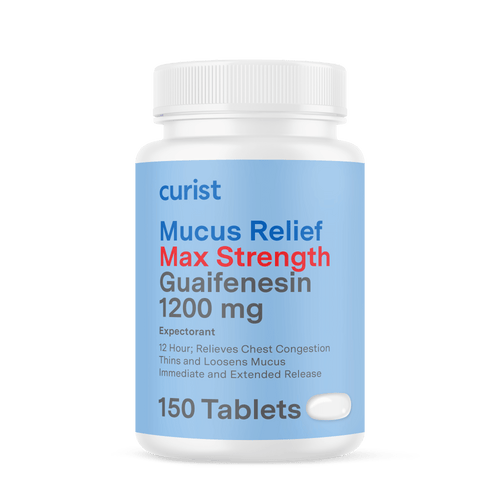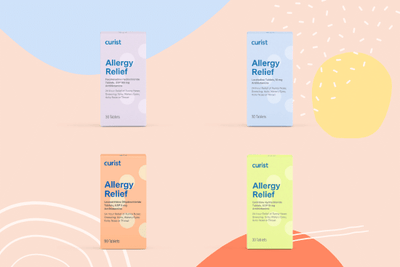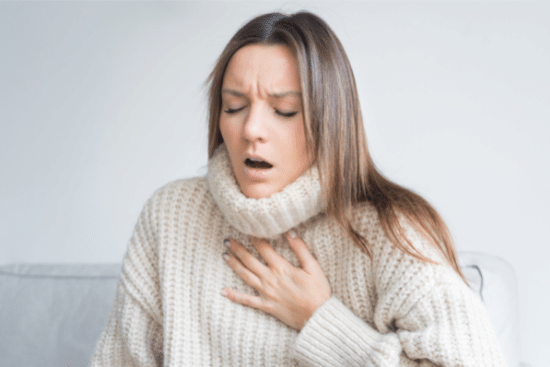
by Dr. Kyler Tormey, PharmD, and Dr. Marc Goldstein, MD, Curist Medical Advisor
Curist delivers over-the-counter medicines to your door at a fraction of the price of traditional brands. We hope everyone stays safe and healthy during this time.
Between coughing, watery eyes, and runny nose, it can be hard to tell if your symptoms are from allergies or asthma. Read on to determine what allergies and asthma are, and how to tell the difference between the two.
What are Allergies? What Causes Allergies?
Allergies are an immune system reaction to a trigger. Triggers are everyday substances like pollen, ragweed or pet dander. While these are usually harmless, the body can identify these as being harmful and generate antibodies against them. Whenever you encounter the substance again, the immune system kicks in to cause symptoms like sneezing, itching, stuffy or runny nose, and watery or red eyes.
What is Asthma? What Causes Asthma?
Asthma is a chronic lung condition which causes inflammation, excess mucus production, and narrowing of airway passages. This airway narrowing can make it hard to breathe, causing you to cough or wheeze, feel short of breath, or have chest tightness. If someone has asthma, common triggers of asthma symptoms include environmental irritants like cigarette smoke or animal dander, or even colds and exercise
Allergic Asthma: Can I Have Both Allergies and Asthma?
Yes, people can have both allergies and asthma. Though they are related, allergies and asthma are different diseases. People can have asthma without allergies, allergies without asthma, both together, or neither!
For some people with both allergies and asthma, allergies can trigger an asthma attack. In allergic asthma, allergens trigger a reaction producing immunoglobulin E (IgE) which inflames the airways and causes swelling. This results in typical asthma symptoms of coughing, wheezing, and feeling short of breath, in addition to allergy symptoms like sneezing, itchy eyes,
One way to narrow down whether you suffer from asthma or allergies is to narrow down what causes your asthma symptoms to worsen.
Is My Cough From Allergies or Asthma?
Both asthma and allergies can cause a dry cough. There are a few symptoms and identifiers associated with each though that can help you tell the difference.
An asthma cough is often associated with a whistling or wheezing sound in the chest when coughing. Allergy coughs are also associated with other symptoms such as sneezing, congestion, and itchy or watery eyes and nose.
Another sign to identify where your cough comes from is trying to determine when you typically cough. For instance, if you notice your cough occurs around the same time every year, this could be an allergy symptom resulting from seasonal pollen or molds. If your cough is unusual, and particularly if you have a fever, the cough may be caused by COVID-19, instead of allergies or asthma.
What Is The Best Treatment For Allergic Asthma?
Identifying if you have asthma and determining the best treatment for asthma should be discussed with your doctor. Most asthma treatments are only available with a doctor’s prescription.
For people with allergic asthma, treating allergies is also a helpful tool in reducing symptoms. The specifics of allergy treatment depends on which symptoms you are suffering from and the severity of those symptoms, but for many symptoms and most people over-the-counter (OTC), non-prescription medicines provide effective treatment. Taking the Curist Quiz can help you determine what the right medicines are for you.
Some additional preventative measures can help you minimize the exposure to allergy triggers, and therefore can help reduce allergic asthma.
- For Seasonal Allergies: Avoid going outdoors during times when the pollen count peaks. If you do go outdoors, promptly remove your clothes and shower to avoid tracking any pollen inside.
- For Pet Allergies: Keep pets out of the bedroom and install a HEPA-type air filter to minimize circulation of dander. Try to keep pets off of upholstered furniture, and wash bedding weekly in hot water.
